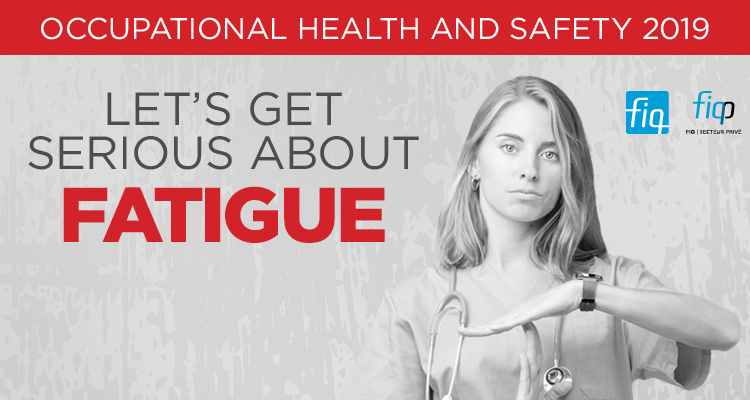
Mental Health: Let’s get serious about fatigue!
In the health sector, all healthcare professionals feel work-related fatigue at one time or another during their work week.
For example, 50.5% of nurses almost always feel fatigued. 80% of them feel fatigued after work. Long work hours, unusual schedules, heavy workloads due to understaffing, and a work environment impacted by several reforms are just some of the causes of nurse fatigue. In other sectors, fatigue is viewed through the lens of occupational health and safety. For example, in the transportation sector, the Quebec Government limits the hours heavy vehicle drivers can drive in a work day and week for safety reasons.
The health sector, however, continues to turn a blind eye to nurse, licensed practical nurse, respiratory therapist and clinical perfusionist fatigue. It’s always been accepted as a necessary evil in this sector. Fatigue is inherent and normalized.
Studies demonstrate that there’s a link between fatigue and health problems in healthcare
professionals. It is seen as a factor that contributes to medical errors and work accidents.
One study reported that 38% of nurses made a fatigue-related near error. Fatigue is also one of the reasons why 25% of healthcare professionals are considering leaving the profession. Fatigue at work has many impacts on healthcare professionals, the health network and patients.
The 2019 OHS Week aims to raise awareness among healthcare professionals about the
dangers of fatigue at work. They need to be able to recognize it, understand it and take
action. The 2019 OHS Week is starting a discussion about fatigue at work, now: Let’s get
serious about fatigue!
2019 OHS Week material
